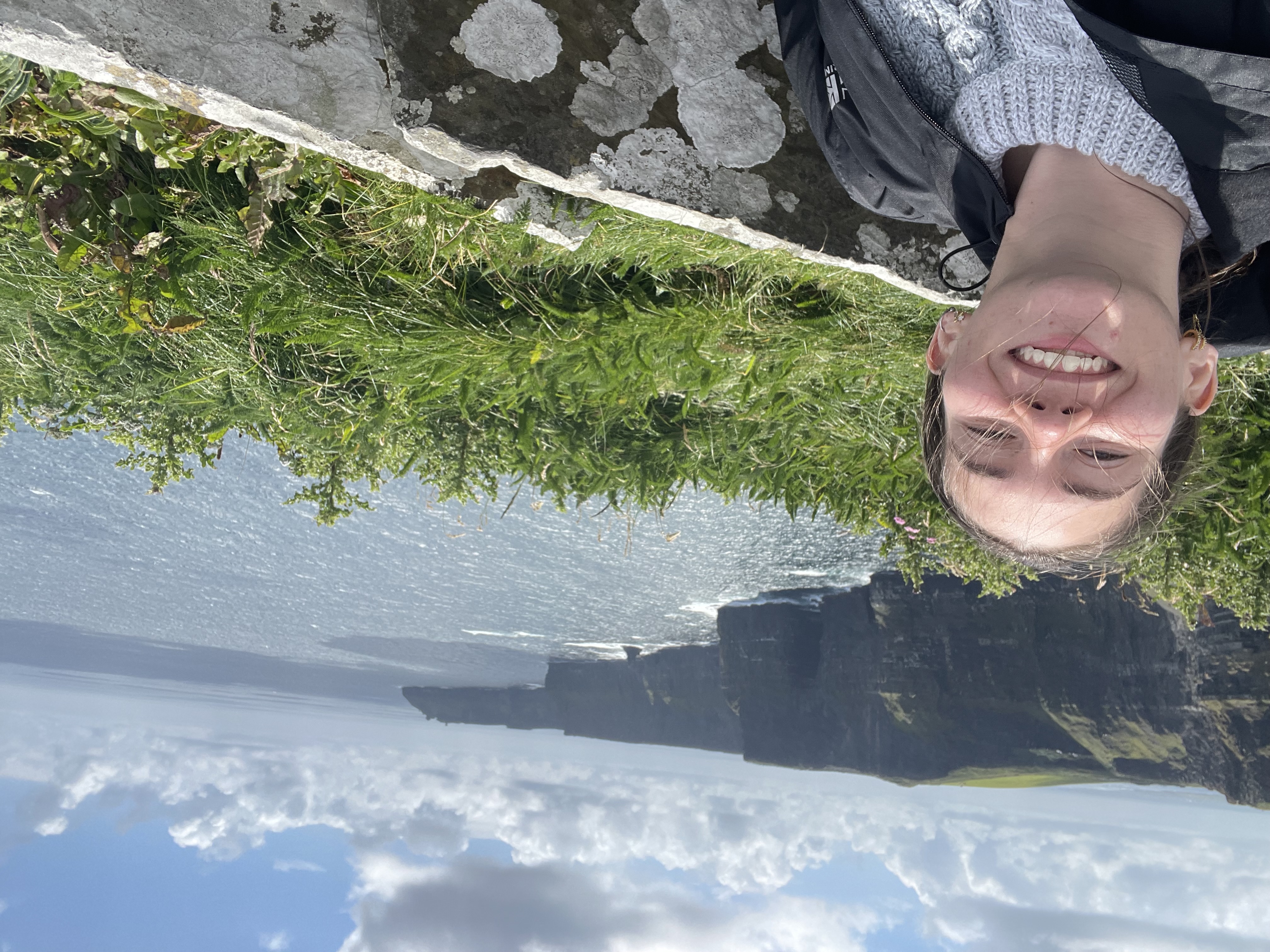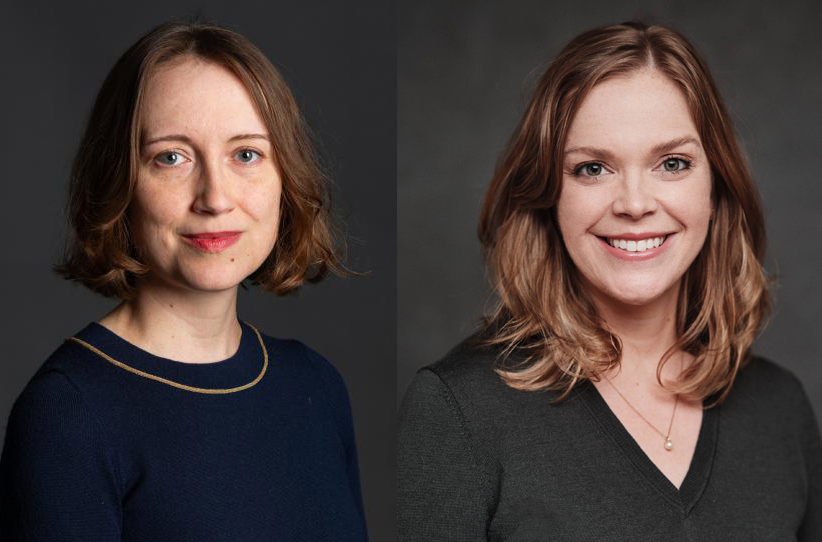A Lehigh University senior spent six weeks in Ireland contributing to a groundbreaking research project that uses artificial intelligence to trace the circulation of early modern poetry across England and Ireland
A Lehigh University senior had the opportunity to spend six weeks in Ireland during the summer of 2024, where she contributed to a groundbreaking research project that uses artificial intelligence to trace how early modern poetry circulated across England and Ireland.
Julia Rock-Torcivia ‘25 worked as a research assistant at the University of Galway through the Lehigh in Ireland study abroad program, which has been providing opportunities to students from various disciplines for about 20 years.
The innovative research project uses A.I. models originally used in biology to track species movement, and applies them to computationally map and model the circulation of early modern English poetry manuscripts between 1475 and 1700. The goal is to establish the most comprehensive bibliographical dataset on early modern English literary culture ever created.

I came into college knowing I wanted to study abroad, and that was one of the things that attracted me to Lehigh in the first place,” Rock-Torcivia said. “I knew a large proportion of students here study abroad, so I knew it would be a possibility for me. And I had a great experience.”
“We're grateful for our strong partnership with the University of Galway,” said Katy Rene, Assistant Director of Study Abroad at Lehigh. “Their faculty and international office are always open to collaboration, and many Lehigh students have benefitted immensely from the learning opportunities provided in Galway through the years.”
Connecting With Her Heritage
Rock-Torcivia, a senior majoring in English with minors in Biology and Journalism, earned three credits from the supervised research internship, and three more from a Gaelic literature course in the University of Galway’s Irish Studies Summer School. She studied Celtic myths and gods, explored the impact of English colonization on Gaelic culture, and learned about efforts to preserve the Gaelic language.
Both of Rock-Torcivia’s parents are of Irish descent, and she applied to study through the Lehigh in Ireland program in part to connect with her heritage. Though she had frequently visited Ireland during summers and holidays, she had never been to Galway before.
During her six-week study abroad experience from early July to mid-August, Rock-Torcivia explored Galway extensively and took several weekend trips, including one to Dublin. She also spent a week in Scotland before the program started, and had opportunities to travel to County Cork to visit her grandmother, aunts, and cousins.
“I would tell anyone who is thinking about studying abroad to definitely do it,” Rock-Torcivia said. “Even if you’re limited in what you can do during the semester, there are winter and summer programs that offer programs for a few months, like what I did. You can definitely find something that works for you.”
Providing Invaluable Contributions

The research project was arranged with help from Jenna Lay, Associate Professor of English at Lehigh and Director of the Eckardt Scholars Program, a selective and unique honors program in the College of Arts and Sciences emphasizing interdisciplinary exploration as well as student choice and flexibility in designing an independent course of study.
Lay connected Rock-Torcivia with her colleague Erin McCarthy, Professor of English Literature and Computational Humanities at the University of Galway and principal investigator of the research project, which is called “STEMMA: Systems of Transmitting Early Modern Manuscript Verse, 1475-1700.”
“Julia was a great addition to the STEMMA team,” McCarthy said. “Her research spanned fields ranging from seventeenth-century Catholic manuscript poetry to humanities applications of A.I., and her contributions to the project have already proven invaluable.”
The project was funded by the Irish Research Council from 2022 to 2023, and by the European Research Council since 2023. They’re working with the Scottish firm Ember Limited to build the database, using A.I. technology to clean the data and detect variations across multiple datasets about manuscript circulation.
Global Learning Experiences
The partnership between Lay and McCarthy was facilitated by a Faculty Internationalization Grant, which enabled Lay to travel to Galway to discuss partnerships with colleagues there. Those discussions also led Marie-Louise Coolahan, an English Professor at the University of Galway, to host two Lehigh English majors in the summer of 2022.
Rock-Torcivia’s research experience was partially supported by a Summer Experiential Learning Fellowship for English Majors, Lay said. It was the inaugural year of this funding program, which will continue to provide high-impact summer opportunities for Lehigh students.
“Julia's research internship with Dr. McCarthy is an excellent example of how global learning experiences can enable Lehigh students to build upon the knowledge and capacities that they develop through their coursework,” Lay said.
“Study abroad programs like Lehigh in Ireland offer students the opportunity to navigate different cultures and encounter new perspectives, all while gaining valuable professional experience and skills,” she said.